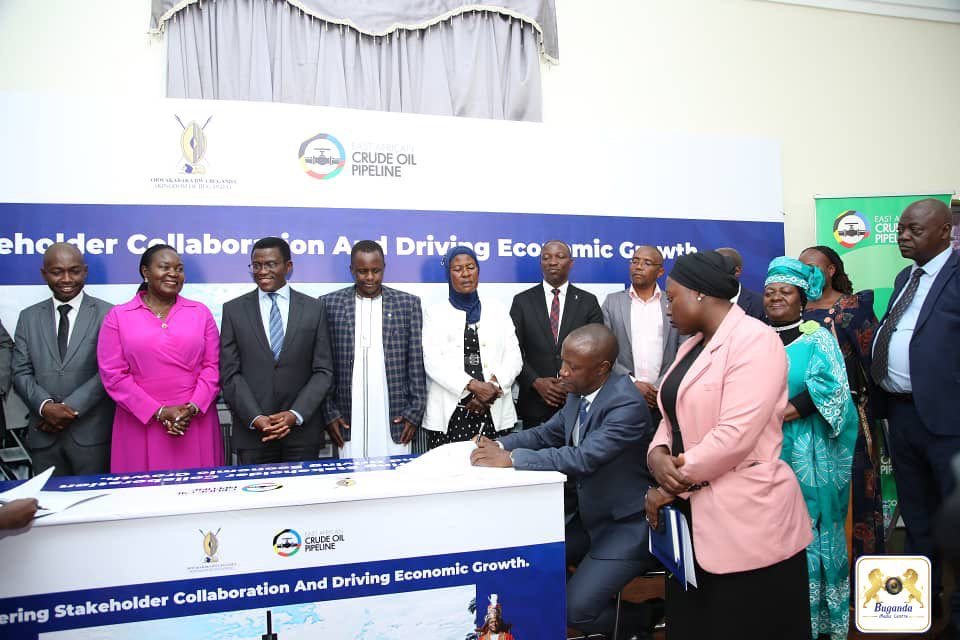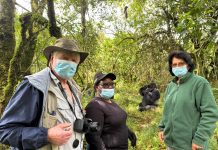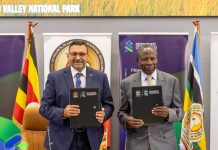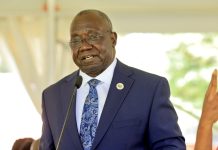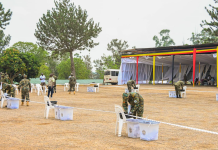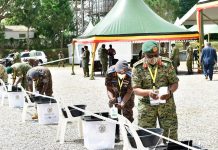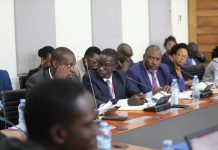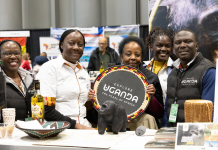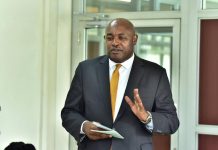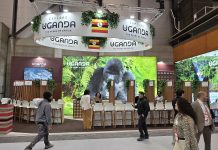By David Mwanje
The East African Crude Oil Pipeline (EACOP) Ltd. signed a historic Memorandum of Understanding with the Buganda Kingdom at Bulange Palace, launching a partnership to boost environmental conservation and community growth. The agreement focuses on two initiatives, expanding the Ekibira Kya Kabaka tree-planting program and building a modern sports center in Buddu County, Masaka District. Buganda commits 120 acres for reforestation and 10 acres for the sports facility, with EACOP funding the state-of-the-art hub to foster talent, promote fitness, and empower youth.
EACOP Managing Director Guillaume Dulout said, “This partnership reflects our commitment to sustainability and socio-economic progress. Through tree planting and the sports center, we’re investing in lasting benefits for communities and the environment.”
Buganda’s Katikkiro, Charles Peter Mayiga, praised the collaboration: “We value partnerships tackling climate change and youth empowerment. Ekibira Kya Abataka and the sports center will create a legacy of resilience and opportunity.”
Energy Minister Ruth Nankabirwa, present at the signing, commended both parties: “This alliance strengthens Uganda’s environmental and community development efforts, blending tradition with progress.”
This deal builds on EACOP’s track record of impactful partnerships since its 2017 inception with Tanzania. In April 2021, Host Government Agreements solidified Uganda and Tanzania’s frameworks, unlocking $3.6 billion in Ugandan investments. NEMA’s 2020 environmental approval ensured ecological safeguards, while the 2022 Final Investment Decision, involving TotalEnergies, CNOOC, UNOC, and TPDC, set the pipeline—now 60% complete by June 2025—for a 2026 launch.
Past achievements highlight EACOP’s focus. The 2025 Youth Economic Empowerment program trained thousands for oil-sector jobs, creating over 32,000 direct roles and up to 90,000 with upstream links. Welding training in Hoima sharpened local skills, while 2024’s National Content roadshows in districts like Mubende engaged suppliers, driving $12 billion in regional economic activity, including benefits for over 130 Buganda villages. A 2025 Tanzania security agreement boosted cross-border cooperation, and biodiversity efforts, like rhino conservation with Uganda Wildlife Authority at Murchison Falls, delivered net-positive environmental gains. A $2 billion financing deal in March 2025 from Afreximbank and others dispelled delays, reinforcing EACOP’s momentum despite global scrutiny over emissions.
The Buganda partnership stands out for its cultural and local resonance, covering seven of EACOP’s 10 Ugandan districts, spanning Hoima to Rakai and over 130 villages. For local Ugandans, it’s a game-changer. In Buganda, where droughts threaten crops, 120 acres of trees could capture thousands of tons of CO2, protecting farmlands. The Masaka sports center will nurture athletic talent, curb unemployment, and promote fitness, especially for women in a male-dominated region. It also addresses past land acquisition tensions—thousands displaced, per Human Rights Watch—by fostering trust through equitable projects.
Nationally, EACOP’s $20 billion revenue potential could boost Uganda’s GDP by 6%, funding infrastructure and clean energy to reduce deforestation (Uganda loses 2% of forests annually). However, the pipeline’s 34 million tons of yearly CO2 emissions challenge Uganda’s climate commitments, requiring robust mitigation. This partnership leans toward balance, showing oil projects can support green and social gains. As Buganda’s forests grow and youth thrive, Uganda moves from resource extraction to a model of sustainable progress, with EACOP and Buganda lighting the way.


